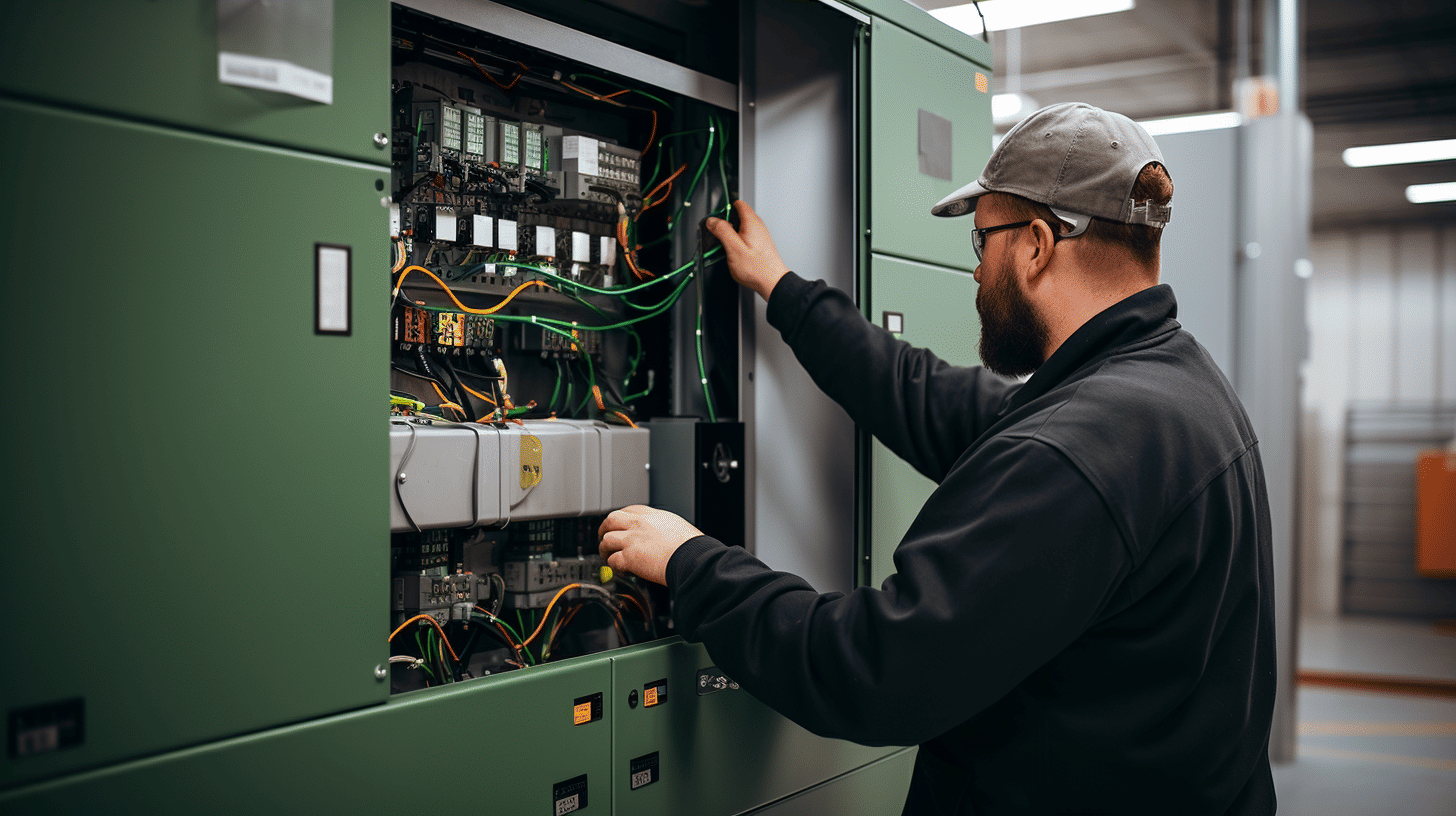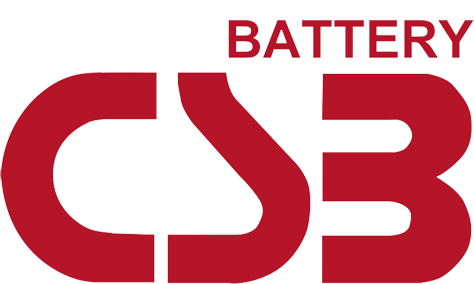The Strategic Advantages of UPS in Electrical Contracting
Power is the lifeblood of today's technology-driven businesses, and interruptions, even for a split second, can have devastating consequences. Recognising this, more and more UK businesses are enthusiastically embracing Uninterruptible Power Supply (UPS) systems. These devices prove to be far more than just backup power providers, offering a layer of defence against timely and costly disruptions.
In this comprehensive guide, we delve into the world of UPS systems, unravelling their significance in the electrical contracting industry in the UK, the strategic advantages they furnish, the important considerations for their deployment, and the legal standards governing their use. We also shine a light on the market trends and innovations that are propelling this sector, gearing up for a future where businesses are more resilient, efficient, and green.
Whether you're a seasoned electrical contractor or a business owner thinking about getting a UPS system for your enterprise, this article will provide a treasure trove of insights. Proceed with us on this enlightening journey, navigating through the critical facets of UPS systems within the UK's electrical contracting landscape. As we uncover the strategic edge, these systems can lend to your operations. You'll come to realise why they are much more than your average power backup solution. Because, at the end of the day, it's not just about having power; it's about having uninterrupted power.
Uninterruptible Power Supply (UPS) Systems: An Overview
Today's digital world is mesmerising, yet highly susceptible to erratic power outages, which could often lead to devastating losses. As severe weather events increase worldwide, the worry over the fragility of our power infrastructure starts to mount. In such a scenario, uninterruptible power supply (UPS) systems emerge as a silver lining. These systems serve as the backbone, nourishing our growing dependence on electricity and ensuring a smooth and regular power supply.
What are UPS Systems?
Uninterruptible power supply systems, fondly referred to as UPS, beautify the core of every tech-savvy individual's life by their miraculous ability to provide backup power when your primary source of power fails. It's not merely a fancy piece of equipment but a powerful tool safeguarding our critical electrical devices ensnared by the unpredictability of power grids.
Speaking of hospitals where every second counts in saving lives, or data centres where a millisecond delay could lead to substantial monetary loss, UPS systems bestow upon them the gift of reliability and uptime.
Leveraging the unparalleled capabilities of a UPS system not only ensures seamless processes but boosts your confidence in dealing with unexpected power outages. Simply put, a UPS system is your knight in shining armour, gallantly fighting against power disruptions, and efficiently powering your machines in critical times.
Essential Components of UPS Systems
Peek beneath the hood of a UPS system, and you'll be introduced to a world of technology seamlessly working together to offer you constant power. Let's swiftly glance through some of those key components:
- Surge Suppressor: This vital component defends your devices against power spikes by absorbing the excess voltage.
- Battery: Playing a critical role in providing backup power, the battery stores energy for use during power interruptions. It's your beacon during power outage storms!
- Inverter: The inverter's magic lies in its ability to convert direct current (DC) from the battery to alternating current (AC) to power your devices.
- Static Switch: This component swiftly transfers the load to bypass when there's a UPS fault, ensuring there's no interruption in power supply.
- Rectifier/Charger: The rectifier converts AC to DC to recharge the battery while the charger ensures the battery is always at full capacity for when it's most needed.
Like a well-rehearsed orchestra, each component of a UPS system has its distinct part to play, harmoniously working together to keep your devices safe and running.
So, next time the power goes out, remain calm and composed knowing that your UPS system has got your back, converting potential chaos into a sigh of relief. And if you don't own one yet? Well, it might be the perfect time to consider investing in one!
In this ever-dynamic world of unknowns, a UPS system stands steadfast, guaranteeing a stable power supply, and offering us peace of mind.

Role of UPS Systems in Electrical Contracting in the UK
As trusted professionals in the field of electrical contracting, we recognise the importance of a reliable power source. Now more than ever, the role of Uninterruptible Power Supply (UPS) systems has become an integral part of our operations across the UK. They provide us with an uninterrupted power supply during both expected and unexpected times of power loss. But why are UPS systems so critical, and what benefits do they offer? Let's delve into it.
Guarantee of Continuous Power Supply
The most apparent role of UPS systems is to keep electricity flowing during power cuts. Power interruptions can create significant headaches, particularly for businesses that rely on continuous electricity supply to function. Here is where UPS systems truly shine.
- Instantaneous Power Source: As soon as a utility power failure occurs, a UPS system kicks into gear, running off battery power to keep equipment operating without any interruption.
- Prevents Downtime: In many sectors like IT, healthcare, banking, and retail, downtime can result not only in financial losses but can also potentially damage the company's reputation. UPS systems allow these businesses to continue their operations seamlessly.
- Backup Time: UPS systems offer you the valuable time needed to safely shut down systems or to switch to an alternate power source, ensuring no data loss and equipment damage.
Simply put, the peace of mind offered by UPS systems is invaluable, allowing businesses to mitigate the negative impacts of power outages effectively.
Protection Against Power Surges
While continuity in the power supply plays a significant role, UPS systems also protect your appliances against power surges. This aspect often gets overlooked, but it's important to remember that our electrical equipment is vulnerable to electricity irregularities.
- Surge Protection: A UPS system will regulate the voltage supplied to an electric device by either blocking or shorting to the ground any unwanted voltages above a safe threshold.
- Electronic Lifespan: By protecting against surges, UPS systems can extend the lifespan of meaningful business investments, such as servers, computers, and other valuable electronic equipment.
In essence, UPS systems act as a buffer, protecting your electrical equipment from potentially harmful electricity fluctuations.
The role of UPS systems in electrical contracting is undeniably significant. They not only ensure continuous power supply, preventing downtime and potential financial losses, but also protect expensive electrical equipment from damaging power surges. By incorporating UPS systems into our contracting work, we aim to provide our customers with the most reliable and resilient power solutions available. Indeed, when it comes to success in electrical contracting, UPS systems prove to be one of the essential tools in our kit.
Strategic Advantages of UPS Systems
Keeping your business up and running without interruptions is not just good practice - it's essential. The slightest power disruption could put a halt to your daily operations and wipe out hours of hard work. It's here that Uninterruptible Power Supply (UPS) systems prove their worth by providing a buffer against power instability. In this article, we'll deep dive into four substantial advantages UPS systems bring to the table - business continuity, enhanced productivity, optimised equipment lifespan, and energy efficiency & environmental impact.
Business Continuity
For any business, downtime can spell disaster. From unsatisfied customers and hampered productivity to loss of data, the repercussions can be manifold. Here's how a UPS system can ensure that the show goes on without any hiccups:
- Instant Power Supply: UPS systems switch to battery power in an instant when a power disruption occurs, without allowing any interruption to your business operations.
- Protection against Data Loss: By ensuring continual power supply, you can avert unsaved data being lost due to abrupt shutdowns. Now, that's something to breathe easily about.
Enhanced Productivity
The impact of a UPS system on workforce productivity is often underestimated. Think about the time wasted due to frequent power disruptions - rebooting systems, recovering lost data, and reworking on unsaved tasks. A reliable UPS system can help you:
- Prevent Work Disruptions: No more unexpected shutdowns to stop you in your tracks.
- Save Time: With timely alerts and sufficient battery backup, you have ample time for orderly shutdowns or to transfer to alternate power sources.
Optimised Equipment Lifespan
Heavy electrical loads and inconsistent power supply can lead to the gradual wear and tear of your sensitive equipment. Using a UPS system, you can prolong your equipment lifespan by:
- Preventing Damage: UPS systems condition incoming power and protect your equipment from voltage fluctuations.
- Reducing Replacement Costs: Longer equipment lifespan means less frequent replacements, significantly lowering your operational costs.
Energy Efficiency and Environmental Impact
Being environmentally conscious may not immediately strike you as a benefit of UPS systems, but it surprisingly is.
- Energy Savings: Modern-day UPS systems are made to run on high-efficiency modes, resulting in a significant reduction in energy wastage.
- Reduced Carbon Footprint: Lower energy consumption inherently leads to a reduction in carbon emissions, helping your business contribute to environmental sustainability.
As we've seen, investing in a UPS system is more than just an emergency power solution. It's about safeguarding your business continuity, boosting productivity, maximising equipment lifespan and making your mark towards a greener planet. Indeed, the strategic advantages of UPS systems are worth considering for any forward-thinking business.
Deployment of UPS Systems: Key Considerations
Power outages can have catastrophic consequences, particularly for businesses heavily reliant on IT infrastructure — which is almost every company nowadays. But don't despair, UPS (Uninterruptible Power Supply) systems are here to save the day! UPS systems provide backup power during mains supply blackouts, ensuring your vital operations stay live. But how do you go about deploying UPS systems properly? Let's break it down into three key aspects: assessing power requirements, picking the right UPS, and vigilantly maintaining your UPS system.
Assessing Power Requirements
When planning to deploy a UPS system, you should first calculate the power requirement of your IT infrastructure. This will allow us to determine the necessary output capacity for your UPS system. Here's how:
- Identify all devices within the power circuit: This includes servers, routers, switches, and any other equipment that will be supported by the UPS system.
- Check the power rating of each device: You will usually find this information printed on a label attached to the device. Add up the power ratings for all devices. This total power draw, usually in watts, will be the minimum power output needed for your UPS system.
- Account for future expansions: If you plan to add more equipment to your IT infrastructure, make this a part of your power needs calculation.
This approach will guide you in selecting a UPS system with the right power output capacity.
Choosing the Right UPS System
UPS systems come in different sizes, designs, and technologies. This might confuse newcomers, but rest assured that choosing the right one becomes significantly less daunting once you understand your power needs.
- Line-Interactive UPS: Line-interactive UPS systems, also known as Voltage Independent systems, are the most used type due to their balance between cost and performance. This technology adjusts low and high voltages to acceptable levels, which can significantly extend the lifespan of your UPS system.
- Online UPS: Online UPS systems, the so-called Voltage and Frequency Independent (VFI) systems, provide superior quality power output and are ideal for businesses with highly sensitive IT equipment. However, they can be expensive and less efficient in terms of power usage compared to other types.
By matching your power requirements and budget with these types of UPS systems, the ideal match should now be clear to you.
Installation and Maintenance
Once you've selected your UPS system, congratulations! But remember that UPS systems are complex and sensitive electrical equipment. Installation should be performed under the supervision of a trained professional.
The story doesn't end with installation. Ongoing maintenance is key to ensuring the longevity of your UPS system. Regularly check your UPS for signs of wear and tear, ensure the battery health is up to mark and take note of unusual sounds or patterns, as these could indicate a problem. Scheduled maintenance helps avoid surprises, so don't put it off.
Implementing a UPS system with careful consideration of power requirements, the right UPS technology, and a plan for diligent maintenance ensures you experience minimal downtime in your operations. You can't predict power outages, but you can be prepared for them!
Legislation and Standards for UPS Systems in the UK
When you're investing in an Uninterruptible Power Supply (UPS) system, you're investing in the peace of mind that your critical systems and operations will remain uninterrupted, even during a power outage. But it's more than just ensuring uptime; it's also about adhering to the UK's stringent regulations and standards set for UPS systems.
The Regulatory Landscape
In the UK, the operations and deployment of UPS systems are guided by a labyrinth of regulations and standards. Here are the key ones you need to be aware of:
- EN 62040-1:2008 + A1:2013: This is the European standard for UPS safety. It specifies the requirements and tests for the safety of UPS systems, including their batteries and chargers.
- EN 62040-2:2005 + A1:2013: This standard covers electromagnetic compatibility (EMC) of UPS systems. It includes tests for electromagnetic emissions and immunity to help ensure your UPS doesn't interfere with other electronic equipment.
- EN 62040-3:2011: This standard sets the performance requirements for UPS systems. It includes specifications for efficiency, output voltage quality, and battery runtime.
- The Waste Electrical and Electronic Equipment (WEEE) Regulations 2013: These regulations require manufacturers of UPS systems to finance the cost of recycling their products when they become waste.
Ensuring Compliance
Now, how can you ensure that your UPS system meets these stringent standards and regulations? Well, that's where we come in. We've honed our expertise in the industry for decades, and we are fully versed in all aspects of UPS legislation and regulations in the UK. We ensure all our UPS systems are compliant, providing not only reliability but also giving you the peace of mind that you're on the right side of the law.
"To navigate this legislative maze, partnering with experts is essential. Wisdom may come with experience, but time doesn't necessarily mean gaining expertise. We pride ourselves on years of hands-on experience and deep industry knowledge, ensuring your UPS system meets all legal and regulatory standards."
Remember, investing in a UPS system is not just about buying a piece of equipment. It's about guaranteeing your business continuity, safeguarding your reputation, and ensuring you comply with the standards and regulations that dictate our industry. And we are here to guide you every step of the way.
Market Trends and Modern Innovations in UPS Systems
In today's digital age, where businesses largely rely on computers and internet connectivity, Uninterrupted Power Supply Systems (UPS) have emerged as a vital component in every organisation's infrastructure. This integral device ensures that in instances of power outages or fluctuations, the machinery stays on—a life-saving measure for devices and data. In this section, we will plunge into the heart of the emerging technological trends, the leading market players, and future predictions in the UPS systems market.
Emerging Technological Trends
A wave of innovation sweeps over the UPS systems industry, driven by the demand for more energy-efficient, eco-friendly, and secure backup solutions. Get ready for some trend-setting, game-changing UPS technologies to watch:
- Modular UPS Systems: These offer a scalable solution to accommodate ever-changing business needs. Boasting the ability to add or remove modules as per the power requirements, they save energy and reduce overhead costs.
- Lithium-Ion Batteries: Traditional lead-acid batteries are slowly making way for lithium-ion batteries, renowned for their longer lifespan, smaller size, and faster charging capability.
- Edge computing compatibility: The rise in IoT devices and applications creates a demand for UPS systems that support edge computing, ensuring data is processed closer to its source.
- Smart-UPS systems: With AI integrated into their design, these systems can predict potential power failures, allowing businesses to undertake preventive maintenance and avoid sudden downtime.
Market Players
Dominated by brands known for their technological prowess and customer-centric strategies, the UPS system market is competitive:
- Schneider Electric: With their robust variety of UPS systems, they remain a favourite among businesses for their innovative eco-friendly solutions.
- APC by Schneider Electric: This brand specialises in providing reliable, high-quality UPS systems suited to an array of applications.
- Eaton: This global technology leader stands out with their scalable and flexible UPS solutions.
- Riello UPS: Their UPS systems define excellence in power, providing a reliable oasis in a fluctuating power landscape.
Future Projections
The future of UPS systems looks promising, with the market expected to grow exponentially in the coming years. The increased digitisation, coupled with the rising awareness about the significant role these systems play in protecting businesses from data loss during power failures, is pushing the market upward. Furthermore, the advent of AI and IoT in UPS systems is set to usher in a new era of innovation and growth in this industry.
To navigate this dynamic landscape, businesses need to stay up to date with the latest trends, embrace innovative solutions, and partner with market leaders in UPS technology. With the right strategy, the power is indeed in their hands, quite literally!
Conclusion
Uninterruptible Power Supply systems have proven to be more than just an auxiliary power source. They are an indispensable strategic asset capable of enhancing productivity, protecting equipment, and even contributing to environmental sustainability. Beyond ensuring continuity in power supply, these systems represent peace of mind, optimal workflow, and assurance against costly downtime.
Navigating the various options for UPS systems can seem daunting. Still, with the right partner like Secure Power, a leading UK specialist in uninterruptible power supply (UPS) systems and maintenance, it becomes a seamless affair. Secure Power offers robust power protection solutions tailored to diverse operational needs.
With Secure Power, you not only get a dependable UPS system but also a dedicated service partner offering regular free backup power health checks, ensuring your UPS parts, including batteries, are always in prime condition. In a rapidly evolving technology landscape, partnering with Secure Power ensures your business stays powered, protected, and more importantly, future-ready!
Frequently Asked Questions
-
What is an uninterruptible power supply (UPS) system?
An uninterruptible power supply (UPS) system is a device that provides emergency power to electrical equipment during power outages or when the input power source fails. It acts as a backup power source to ensure uninterrupted operation and to protect sensitive equipment from damage.
-
What are the strategic advantages of using UPS systems in UK electrical contracting?
The strategic advantages of using UPS systems in UK electrical contracting include 1. Minimising downtime and revenue loss due to power disruptions, 2. Protecting critical and sensitive equipment from power surges, fluctuations, and outages, 3. Ensuring data integrity and preventing data loss, 4. Enhancing business continuity and productivity, and 5. Meeting industry regulations and client requirements.
-
Are UPS systems only useful for large-scale electrical contracting projects?
No, UPS systems can be beneficial for both small-scale and large-scale electrical contracting projects. They provide backup power to critical equipment, regardless of the project's size, ensuring uninterrupted operation, and protecting valuable assets.
-
Do UPS systems require regular maintenance?
Yes, UPS systems require regular maintenance to ensure optimal performance and reliability. Maintenance activities include battery checks, cleaning, firmware updates, and testing to identify any potential issues and prevent failures.
-
Can UPS systems be integrated with renewable energy sources?
Yes, UPS systems can be integrated with renewable energy sources, such as solar panels or wind turbines, to provide backup power during periods of renewable energy scarcity or inconsistent availability. This integration ensures a more sustainable and reliable power supply.














